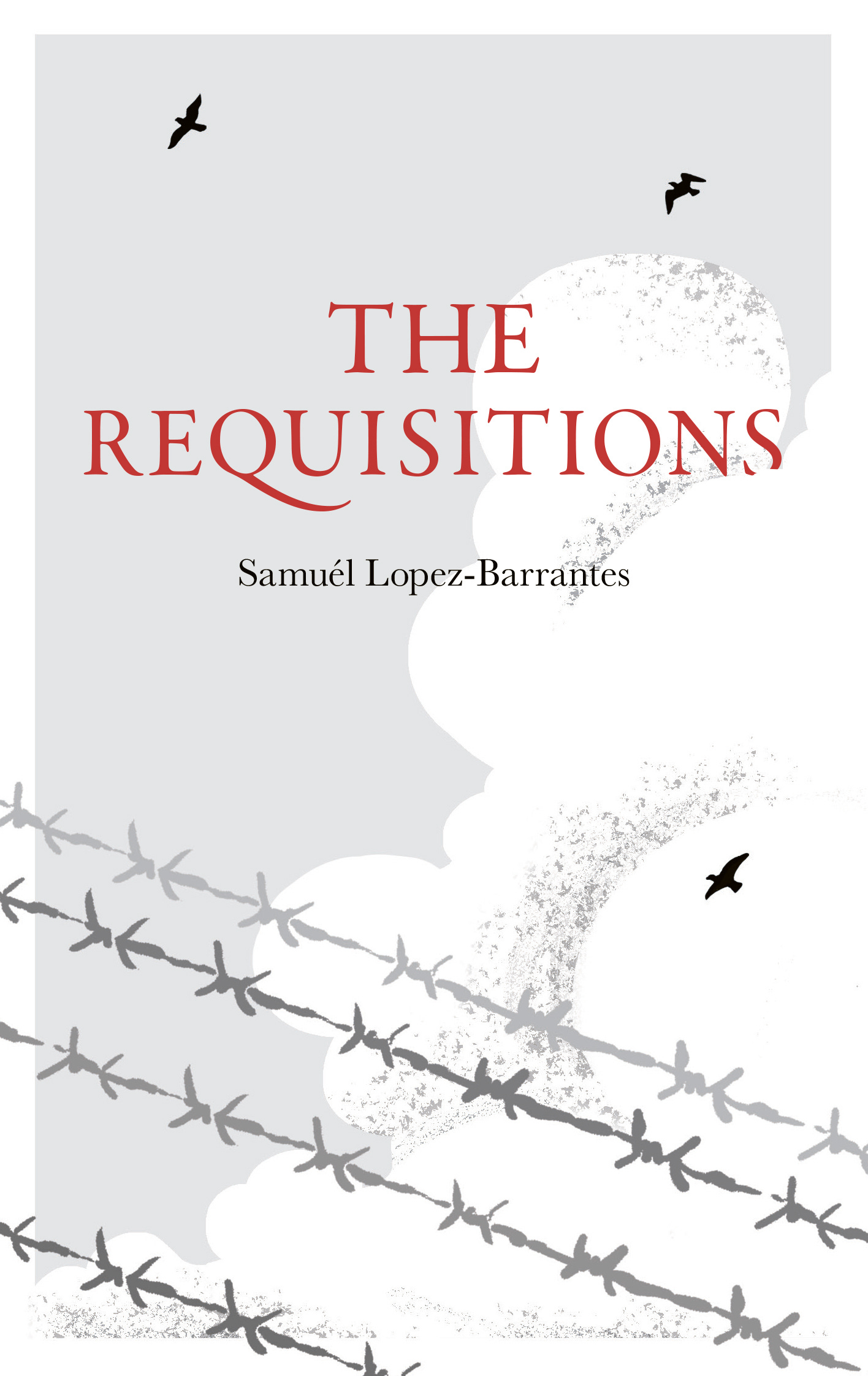This one’s for the philosophers. Which, by the way, means all of us.
Some of you have heard the whispers: I’ve finished my next novel, The Requisitions. It’s headed to print in a matter of days, and you’ll be hearing a whole lot more about it next week.
The reason I mention it here is: 1) only about 45% of you will actually read this message, but 2) while the novel is about history, memory, and the Nazi Occupation of Poland, it’s really about philosophy, i.e. trying to understand what we’re all doing here, and how we make sense of our lives in times of extreme turmoil.
This is the cover:
More on everything The Requisitions soon, but if you’re one of my 900+ free subscribers receiving this on a Sunday morning, you might just find a special offer down below to reserve one of 300 signed limited-1st edition copies of a novel that’s been a lifetime in the making.
Finishing the Hat w/ Brendan Graham Dempsey
For the last of this season’s Finishing the Hat episodes (#5), I’m reconnecting with an old friend from my University of Vermont days, the philosopher/cultural theorist
. Brendan wrote an epic poem for his senior thesis, is a badass saxophonist and pianist, and was the first person in the world to get me thinking about the term metamodernism.1Brendan’s YouTube series on metamodernism is a must-see for anyone seriously considering the ways in which this current cultural era has evolved since the early 2000s, but more than anything else, Brendan’s wisdom comes at a time in my life when—having finished The Requisitions—I feel most receptive to thinking about the forever oscillating aspects of the human condition.
Brendan and I met at the University of Vermont in a college band (The Sepia Tones) which I started with my twin brother,
. We weren’t very good, but we did have a whole lot of fun, and I have a photo from January, 2008 to prove it:Brendan is still making art and living the writing life in Vermont, which is as an authentic way of life as I can imagine. In our conversation, Brendan summarizes his most recent book, Metamodernism: Or, the Cultural Logic of Cultural Logics, by providing important historical context for understanding the cultural and artistic paradigm shifts from modernism—> postmodernism—>metamodernism.
Below are some of my favorite quotes from this episode. All four previous episodes of Finishing the Hat are cited in the foonote.2
Dempsey-isms from Finishing the Hat, Episode 5
Brendan’s new book: “I'm trying to do something with Metamodernism: Or, the Cultural Logic of Cultural Logics like what Frederic Jameson did Postmodernism, or, the Cultural Logic of Late Capitalism, which is try to present sort of a structural account of metamodernism. But, unlike Jameson, I'm not just looking at economic factors and then saying metamodernism is a cultural logic of a certain stage of capitalism. I think there are deeper actual elements to that … try to look at Metamodernism as a cultural logic of cultural logics.”
On the Ugliness of Not Caring: “I think this stuff needs to be out there more to help artists, to help people contextualize their own work. It began very much from my own feeling that, you know, basically growing up during the postmodern kind of paradigm, I guess I didn’t know my own sort of artistic maturity. In the waning years of postmodernism, I just felt like whatever art I was seeing, felt very tired and exhausted and predictable and stupid. It lacked meaning, but it also very intentionally lacked meaning. It was ugly. It was sort of in your face, and confrontational, and that was supposed to be what made it interesting. But for me, that's what kind of just made it like, yeah, we've seen this a million times […]
On Aesthetics: “Beauty's hard. And it's a lot easier to just put a piece of crap in an art gallery—like a literal piece of crap. I mean that literally.”
On Modernity: “In modernity, you get this sense of: we can know the truth and it's the truth for everyone, and it's the only one answer, because we used our reason right? And so it's not a matter of interpretation. It's just the one real story, and if you don't like it, then, you know, sorry. Get with the program. Towards Postmodernism: The postmodern turn is really about emphasizing alternative stories, about shifting away from these notions of progress and linear advancement. And you know, critiquing the roles that technology plays, and this famously got picked up as sort of a way of thinking about this, it’s what Jean Francois Leotard said the postmodern condition is characterized by what he called an incredulity towards meta-narratives or grand narratives.
On Meaning: “The meaning issue is so crucial to this metamodern conception. If you're grappling with this notion that postmodernism comes along and deconstructs the grand narratives of the past, and then just leaves you in nihilism and meaninglessness and with this very crude power analysis … there's this hunger for meaning and purpose and significance, but in a way it’s not just reactionary. [It’s not just] I'll take up some ancient religious creed or will just believe in sort of some transhumanist Utopia … it's somehow dealing with meaning in a manner that takes seriously the critiques of it, both for modernity, but certainly from postmodernity, and yet find something meaningful on the other side. So what is really meaningful, right? What is actually meaningful?”
On identity: “My self-awareness of my own identity is a product of being around other people, and without others I could not even be myself. So it really starts to reshape how you think about things. And once you're able to fit in more and more [types of] relationships, and see how all these [relationships] increasingly play off each other, a lot of that strict dualistic black and white thinking just falls away. And you know, arguably, that's what we need right now in a hyperpolarized world, in a world still riven by these old parochial divisions.”
Why I’m Not Over Dead French Writers Just Yet
What was modernism, postmodernism, and why am I writing an essay arguing for the seemingly pretentious term metamodernism? Academic terms tend to be purposefully obtuse and annoying, but only so long as we’re unwilling to investigate them.
Episode 1: Stock Fiction’s Meg Oolders, who just won a 2023 Wattpad Watty Award for Fiction. Meg lives in New Hampshire and I live in Paris. Despite the 3,400 miles that separate us, we now call each other friends.
Episode 2: Amran Gowani's Field Research’s Amran Gowani, whose witty satire just landed him a literary agent bidding war, but whose digital friendship has proven to be one of this year’s best surprises.
Episode 3: The Elysian by Elle Griffin, one of the most successful, prolific & thoughtful writers on this platform whose continued support and friendship keeps my Substack-ticker ticking.
Episode 4: Castalia’s Sam Kahn, a deep thinking essayist, fiction writer & lyrical author who believes this space can (and should) be more than yet another money-making platform.

















Share this post